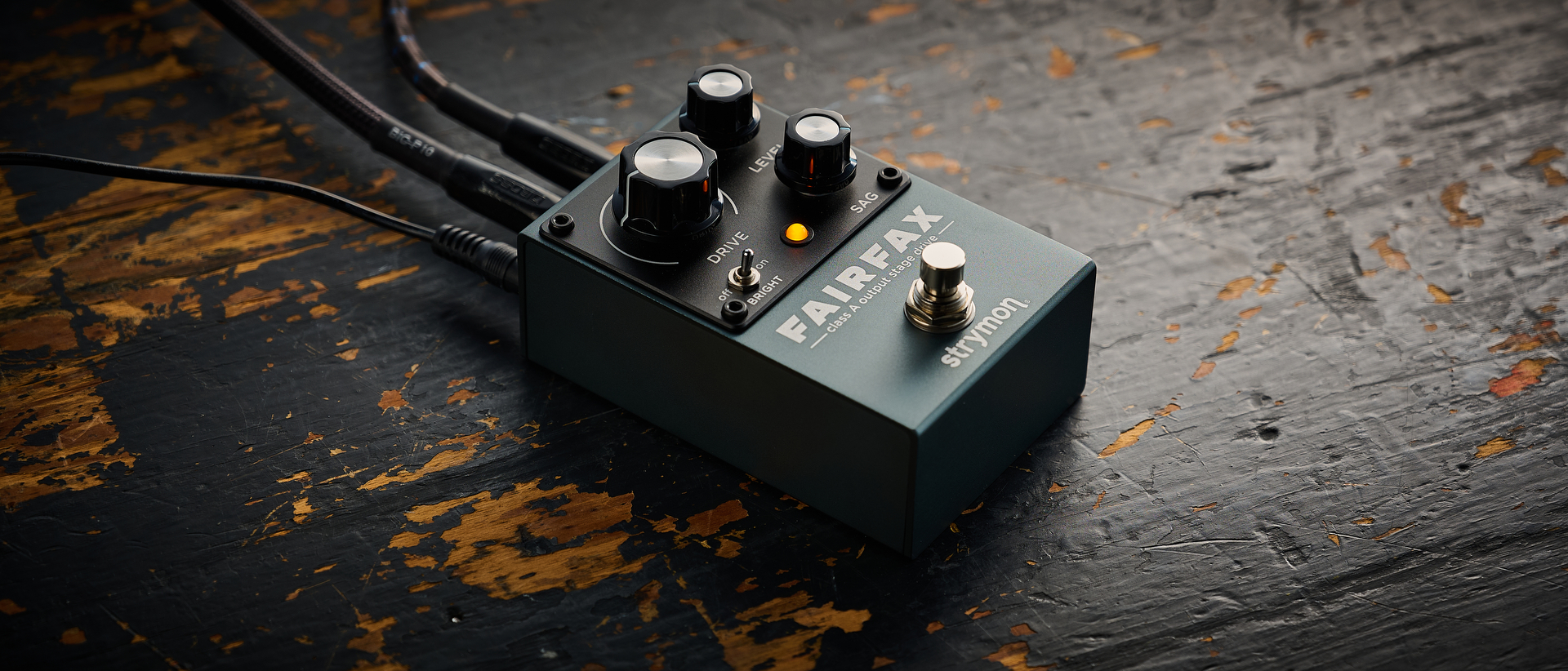Interview: Joel McIver and Megadeth's David Ellefson Discuss Their New Book, 'My Life with Deth'
All the latest guitar news, interviews, lessons, reviews, deals and more, direct to your inbox!
You are now subscribed
Your newsletter sign-up was successful

Rock and roll tell-all books are a dime a dozen.
Countless rock veterans have joined forces with ghost writers and tossed band mates — former and current — under the proverbial tour bus.
But Megadeth’s David Ellefson and journalist Joel McIver have never been about trends. Ellefson wrote his first book, Making Music Your Business, 16 years ago. McIver, the editor of Bass Guitar magazine, has written 24 books and counting.
With their new project, My Life with Deth: Discovering Meaning in a Life of Rock & Roll, their combined objective was clear: to tell the story of Ellefson the man and not to sensationalize Ellefson the rock star. What you get is an insight into his growth in his faith — and much more.
I recently spoke to Ellefson and McIver about the new book.
GUITAR WORLD: You guys have partnered to create My Life With Deth. Whose idea was it, and who got the ball rolling?
Joel: I had known David for a few years through my work as the editor of Bass Guitar. When David was working with Peavey in the 2000s, we had struck a few emails and I went to cover the first Big Four in Poland in 2010. We had a brief chat at the show, and the next day I emailed David and said it was great to meet him and asked if he’d ever thought about writing an autobiography. Around the time, Dave Mustaine had put out his book, and David didn’t want to tread on that. We talked a bit and threw around some ideas for an angle. Within about three or four months, we had sort of a plan.
All the latest guitar news, interviews, lessons, reviews, deals and more, direct to your inbox!
David: I've always worked to keep my personal life and my family out of the spotlight. The spotlight is on me because I do something that requires me to be in a spotlight, being a musician and performer. I always wanted to keep my kids out of it, and my wife has no desire to be in the spotlight.
Also what I saw with so many of these books is that the trend is to do a tell-all scorcher and throw everyone under the bus and to feel justified doing it. That is not my style or a protocol of how I live my life. There are also past addictions, which I have been pretty open about. For me, my journey is not something I wanted to try and make money from. Most of these books are a guy getting out of rehab and 30 days later they are on TV and writing books.
I’ve seen most of those stories not be successful in the long term. I’ve lived my life under a protocol of anonymity and keeping my head down and playing my instrument. I try to let the focus be my bass playing and not my personal life. A lot of these books tend to run contrary to my personal nature. I called my pastor. I’d been pretty involved in a lot of church work in my time away from Megadeth.
One of the first things he said to me was to reference [former NFL head coach] Tony Dungy. He talked about how he was solid in his Christian faith and wrote a book that spoke to his fan base in the NFL and at the same time wasn’t afraid to talk about his faith journey. He talked about the challenges he had.
The NFL is a lot like rock and roll, with money, power and fame. I paid attention to that. That was really the course of the book. As it turned out, Dave Mustaine and maybe the exception of Joey Kramer and Steve Tyler are the only guys who have written memoir books and still play in the same band together.
So many other rock star authors throw the rest of the band under the bus. It would've been easy to take two or three chapters and throw stones. One of the things I found so enjoyable was the humility in the book. You don’t glamorize things you’ve done and spent so much time working through. You're very upfront about the embarrassment and pain with your family. Was that something you worked through talking about with your pastor?
David: My hard drug-running years were 25 years ago. It was ironic that we did dates with Iron Maiden again this year. The book starts with kind of the end of my addiction, which was when it all came to light on the seven shows we did with them in 1988.
In August 1988 at Castle Donington, I was completely strung out on drugs, and those were the last shows I’ve played under the influence of any chemicals. I went home and began the journey that resulted in abstinence and sobriety. I’m not an anti-drug, anti-drink guy that gets up on those soap boxes. I try to stay away from that because I don’t think it's my place to do that.
Ironically, I’ve gotten calls from churches and such that like to hear those stories of a man rising from his ashes. There has always been this conflict I’ve had with being very honest about my story. Joel and I really tried to make this my story. Some people want to put their spin on it and make it about a man that’s turned away from his demons and heavy metal, but that’s not my story. Even in the church it has been one of my biggest struggles. I’m right where God wants me to be, even if I’m not right where the Church wants me to be.
How accepting has your church been of you and your MEGALife ministry?
David: The Lutheran Missouri Synod is very conservative. I actually made friends with my pastor. He’s a musician and he writes and has passion for music. His son is a Megadeth fan, which is how he got to know my history as a church member. We just hit it off on a musical, as well as a faith, level. We became buddies more than anything.
For me and Joel, telling this story was first and foremost about a kid who was struck with this passion for playing bass guitar. Why the bass? I have no idea. To me, that was the beginning of the seed of the good Lord saying, “Young man, I need you to play the bass because there is a bunch of other stuff I’m going to have you do in your life." So there is this thread of this boy from the farm, the journey that happened over 40 years ago.
Is there some addiction? Yes. There is the struggle of the bright lights versus what you know is right. Are there some faith issues in there? Of course. Probably more than anything, Joel and I tried to focus on being honest, telling the story and not propagate something that any other community would try to exploit the story. The saying goes, “Everyone has at least one good book in them." The struggle always is that the book needs to sell for the publisher, but you don’t want to put stuff in there just to sell the book.
Without Joel, I probably would not know how to hit that mark. I would have always second-guessed myself. He knows my story and Megadeth’s story so well that he was the navigator of these challenges. It might be my story, but both of us wrote it.
David, your return to Megadeth after your time away from the band really helped to bring the story full circle. With the Big Four and the mending of fences, it really gives it a sense of closure.
Joel: The events that lined up to allow David back in to the band really will blow your mind. One of them being James LoMenzo leaving the band, which opened up the space. The second was Tom Araya of Slayer injuring his neck, which caused the American Carnage tour to be pushed back.
David: Exactly. It was this amazing moment and feeling inside of me. I think that when you read the book, my faith journey in the book isn’t that the heaven’s parted and angels sang. It was this small, still voice inside me that said, “Go here, do this."
One of those moments was leading up to NAMM in January 2010, when Tom had to take time off and the Carnage tour was pushed back. Suddenly Rust in Peace dates where put on sale. I ran into Shawn Drover at NAMM. Everything happened in a short two-week window, and it changed the course of my life and Megadeth. Those are the moments I think are compelling in the story. Joel knew I needed to tell this story and not be timid about it. The book wouldn't have happened without Joel.
Find out more about Ellefson at davidellefson.com and megadeth.com. My Life with Deth: Discovering Meaning in a Life of Rock & Roll will be released October 29 via Simon & Schuster. Catch Ellefson on the road with Megadeth now.
For more about McIver, visit joelmciver.co.uk.
Photo: John Katic
John Katic is a writer and podcaster who founded the Iron City Rocks Podcast in 2009. It features interviews with countless rock, hard rock, metal and blues artists. In 2013, he started Heavy Metal Bookclub, a podcast and website devoted to hard rock and metal books.
